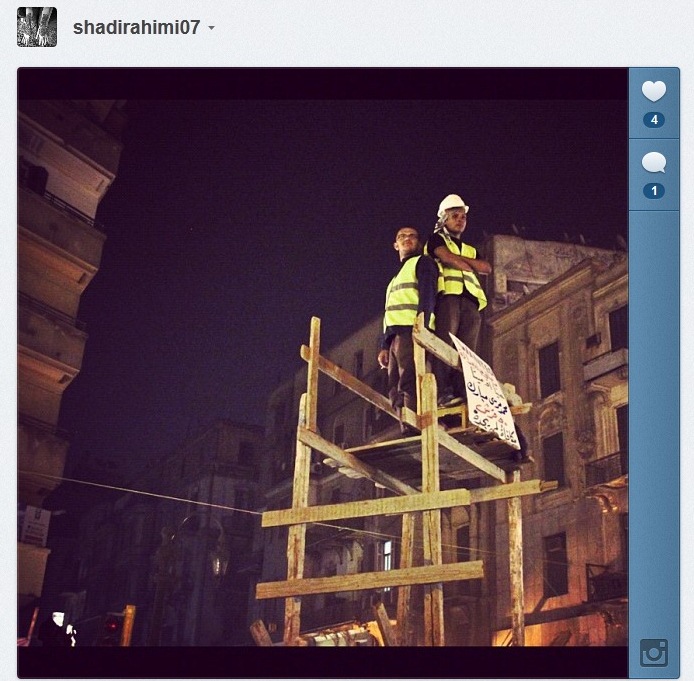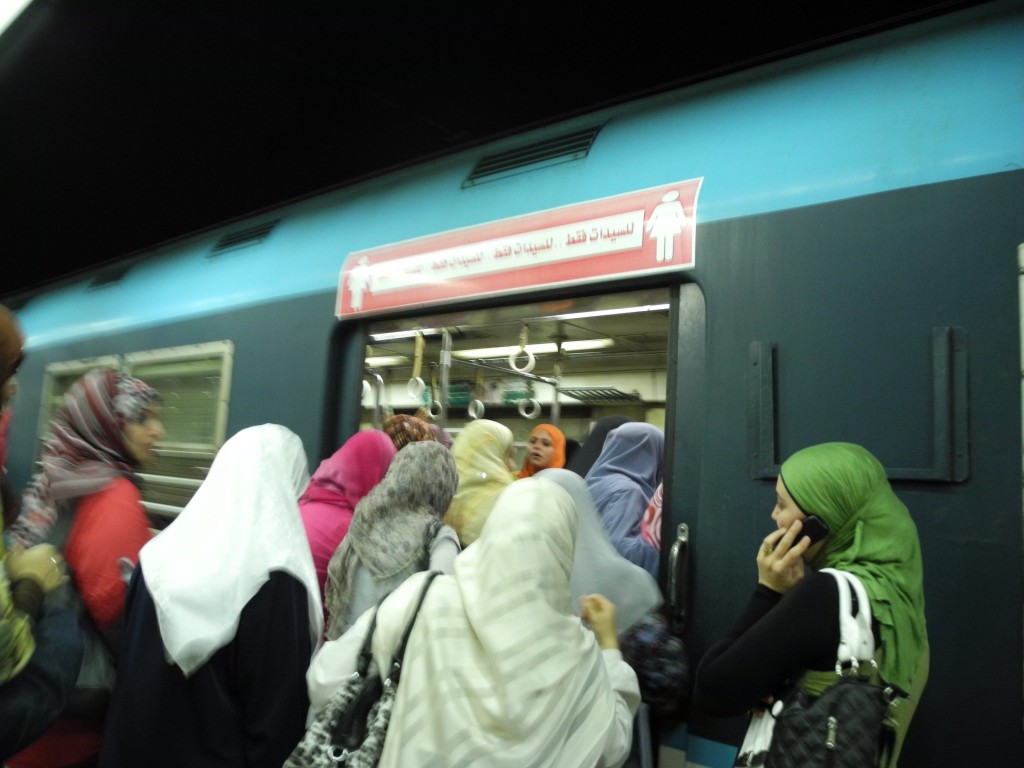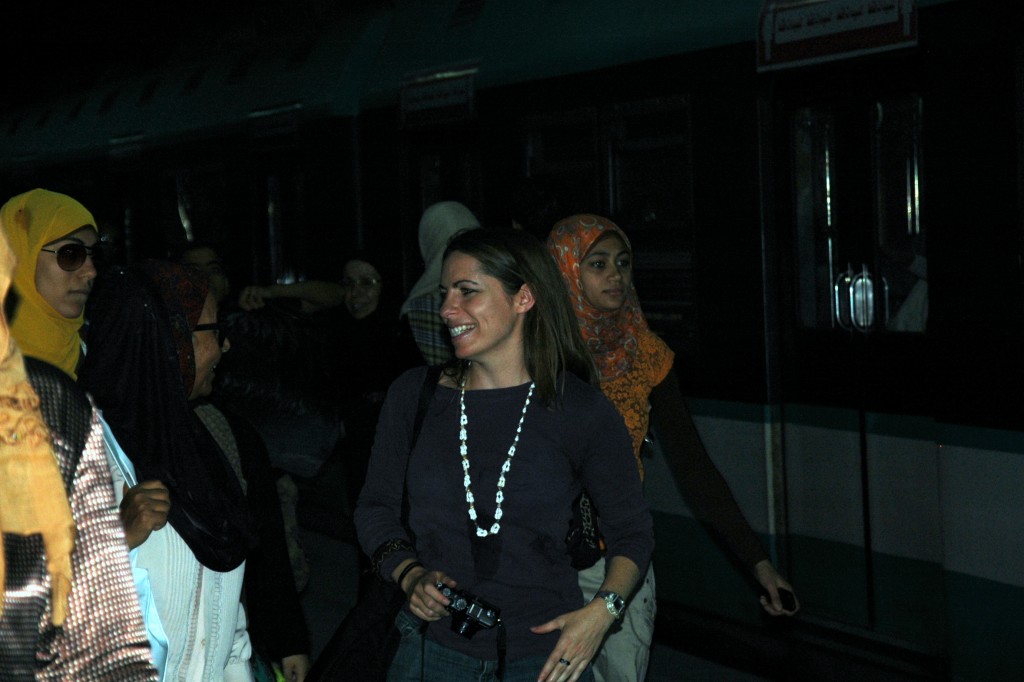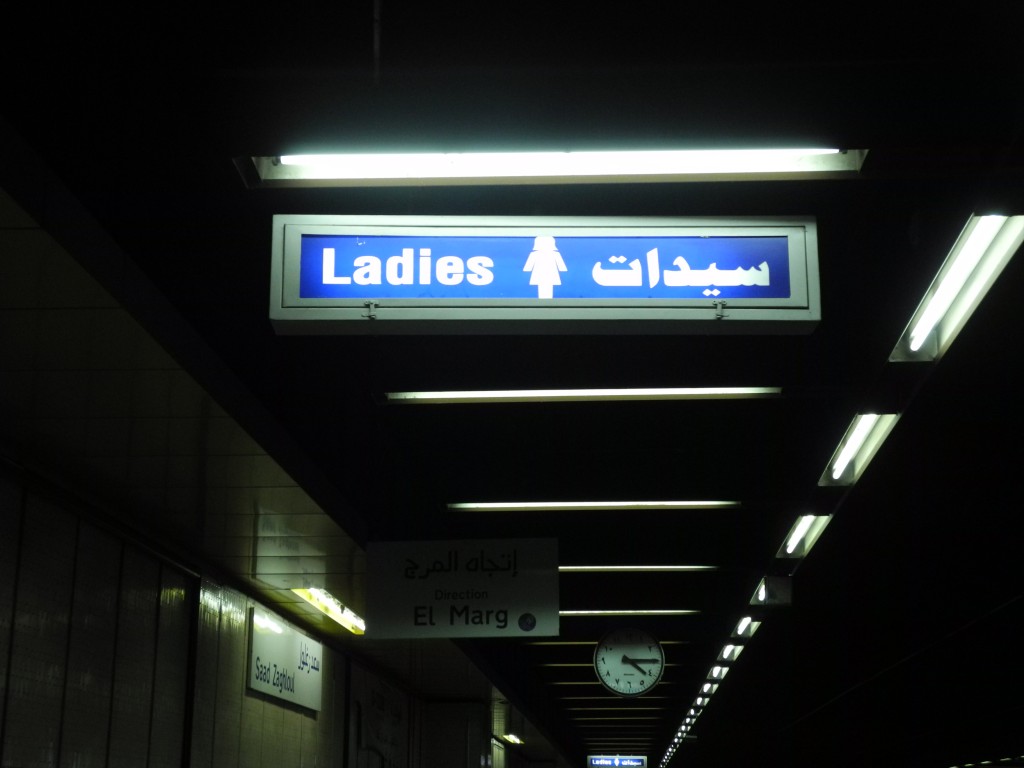During the 16 Days of Activism Against Gender Violence (Nov. 25 – Dec. 10), Stop Street Harassment is featuring activists who took action against street harassment this year, one new country per day.

Day #16: Egypt
From creating human chains and organizing rallies to protest street sexual violence, to organizing volunteers to speak to community members about the issue, to advocating for stronger anti-harassment laws, to creating volunteer anti-harassment patrols, activists in Egypt have been BUSY this year!
This summer, I traveled to Egypt and met with many of these activists, especially from HarassMap, and participated in some of their work. It was inspiring.
To better understand the issue and what activists there are fighting, watch this powerful (but possibly triggering) segment from Unreported World, released on Friday. To know that men are paid to sexually assault women who are participating in the political process by protesting is horrific, but I gain courage from their courage as they fight and speak out despite this grim truth.





